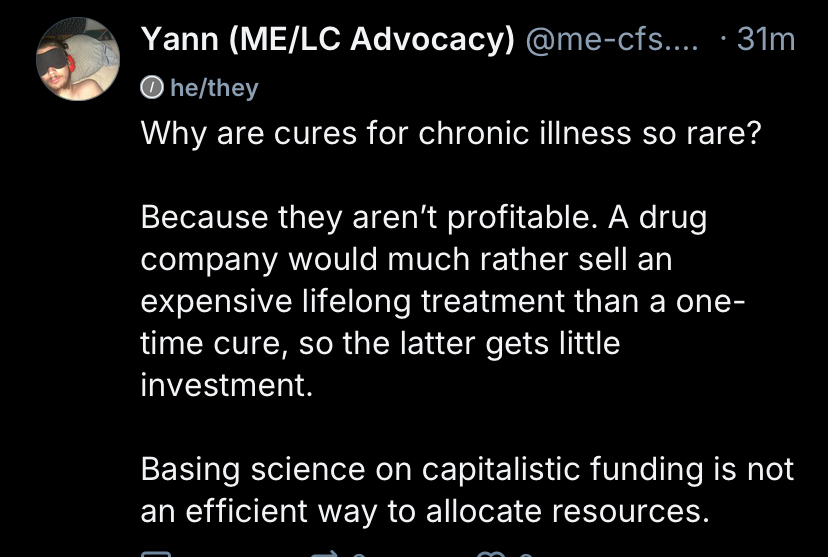this post was submitted on 15 Dec 2024
661 points (87.6% liked)
Microblog Memes
6044 readers
2896 users here now
A place to share screenshots of Microblog posts, whether from Mastodon, tumblr, ~~Twitter~~ X, KBin, Threads or elsewhere.
Created as an evolution of White People Twitter and other tweet-capture subreddits.
Rules:
- Please put at least one word relevant to the post in the post title.
- Be nice.
- No advertising, brand promotion or guerilla marketing.
- Posters are encouraged to link to the toot or tweet etc in the description of posts.
Related communities:
founded 1 year ago
MODERATORS
you are viewing a single comment's thread
view the rest of the comments
view the rest of the comments

TLDR yes, they are wrong.
Prisoner's dilemma. As a pharmaceutical company, you know theoretically a cure for a given chronic illness exists. What you don't know is if your competitor is close to having one. If they are, it would render your pathetic non-curative regimes obsolete and you'd lose billions and be decades behind. Shareholders would be calling for blood, and if you're the CEO or board exec you'd lose your head. So you work on developing the drug because even if its possibly less profitable, its still in your best interest to do the research.
Most people doing this kind of research are universities, which are publicly funded and would gain more profit from a curative drug than they would from letting big pharma continue using non-curative regimens.
Government has strong interest in developing cures because chronic illness is a massive drain on the economy costing billions of dollars, with significant public health costs that eat into government budgets that politicians would much rather spend on things like weapons or parking meters that accept credit cards.